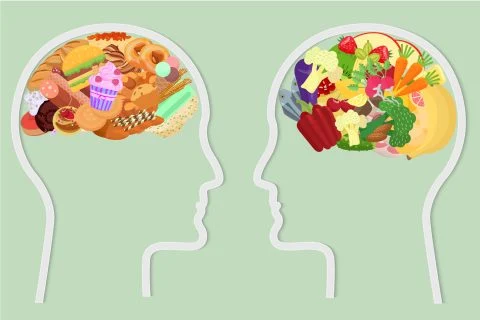6 Healthy Habits that Reduce the Risk of Developing Alzheimer's Disease
Healthy lifestyle factors, including physical activity and smoking cessation, are associated with a lower risk of developing Alzheimer's disease.
6 Healthy Habits that Reduce the Risk of Developing Alzheimer's Disease
Scientists assessed the condition of the participants according to seven factors considered to be the basis of the health of the cardiovascular system:
Doing regular physical activity is one of the best ways to reduce your risk of dementia. It’s good for your heart, circulation, weight, and mental wellbeing.
You might find it difficult to start being more physically active or worry it means doing an activity you don’t enjoy. It’s important to find activities that work for you. You might find it helpful to start off with a small amount of activity and then build up gradually.
There are two main types of physical activity – aerobic activity and strength-building activity. Each type will keep you fit in different ways. Doing a combination of these activities will help you to reduce your risk of dementia.
In general, one minute of vigorous activity is equal to two minutes of moderate-intensity activity. The official UK recommendation is to try to do at least 150 minutes of moderate-intensity activity each week or 75 minutes of vigorous activity. You can break this activity up into smaller sessions if it’s easier for you.
It’s also a good idea to spend less time sitting or lying down and more time moving. (5 Steps to Live a Healthy Lifestyle - How to maintaining a Healthy lifestyle)
2. Eating healthily
Eating a healthy, balanced diet may reduce your risk of dementia, as well as other conditions including cancer, type 2 diabetes, obesity, stroke, and heart disease.
No single ingredient, nutrient, or food can improve brain health by itself. Instead, eating a range of different foods in the right proportions is what makes a difference. This is known as a ‘balanced’ diet.
By eating a balanced diet you are more likely to get all the nutrients you need for your brain to stay healthy. Eating a Mediterranean-style diet doesn’t necessarily mean eating foods from Mediterranean countries. Instead, try to follow these guidelines. Include wholegrain starchy foods in most meals – for example, wholemeal bread, rice, and pasta.
- Eat more fruits, vegetables, pulses (for example, beans, peas and lentils) and nuts and seeds.
- Try to choose lower-fat dairy foods where possible.
- Use vegetable and plant oils for cooking and dressing – for example, olive oil and rapeseed oil. Try to avoid solid fats like butter, lard or ghee.
- Limit the amount of salt in your diet – try not to eat more than 6g (about a teaspoon) a day.
- Try to make sugary foods only occasional treats – such as pastries, sweets, biscuits, cakes and chocolate.
- Consume alcohol in moderation (ideally with food) – if you don’t drink alcohol already, try not to start.
If you smoke, you’re putting yourself at a much higher risk of developing dementia later in life.
Smoking does a lot of harm to the circulation of blood around the body, particularly the blood vessels in the brain, as well as the heart and lungs.
It’s never too late to quit smoking. However, the earlier you stop, the more brain damage you will avoid. (Top 7 Tips for Quitting Smoking: The Most Effective Ways to Stop Smoking?)
4. Avoid alcohol
Drinking alcohol increases your risk of developing dementia.
Drinking much alcohol at one time exposes your brain to high levels of harmful chemicals.
Alcohol increases your risk of damage to your brain and other organs, and so increases your risk of dementia.
5. Stay mentally and socially active
Engaging in mental or social activities may help to build up your brain’s ability to cope with the disease, relieve stress, and improve your mood. This means doing these activities may help to delay, or even prevent, dementia from developing.
Find activities you enjoy that challenge your brain, and do them regularly. This could be puzzles or crosswords, but there are also many other activities you could do.
Anything that engages your mind, processes information and develops your thinking skills is good for the brain and reduces your risk. For example any kind of adult education or learning
arts and crafts (especially in groups)
playing a musical instrument or singing
volunteering, for example, volunteering with Alzheimer's Society
doing ‘brainteasers’, such as puzzles, crosswords or quizzes
playing card games, chess or board games
reading books, or becoming a member of a book club
creative writing or keeping a diary
learning a new language.
If you use a smartphone or tablet (for example an iPad) you might enjoy apps that can provide mental stimulation. These include puzzle, memory or board game apps.
Social activities are also good for the brain, making them a great way to reduce your risk of getting dementia. This includes interacting with other people online as well as in person. This means it’s important to try to keep in touch with the people who matter to you, such as friends and family.
6. Take control of your health
As you get older, you are more likely to develop certain health conditions, such as high blood pressure or diabetes. These conditions can increase the risk of getting dementia.
An important way to avoid this is by going for a health check.
It turned out that even at the highest risk, compliance with
the recommendations made it possible to reduce the likelihood of developing
Alzheimer's disease.
The good news is that even people with the highest genetic
risk who lead a healthy lifestyle are likely to have a lower risk of developing
dementia.
RELATED: Olive Oil And Alzheimer's Disease: Olive Oil For Brain Health











